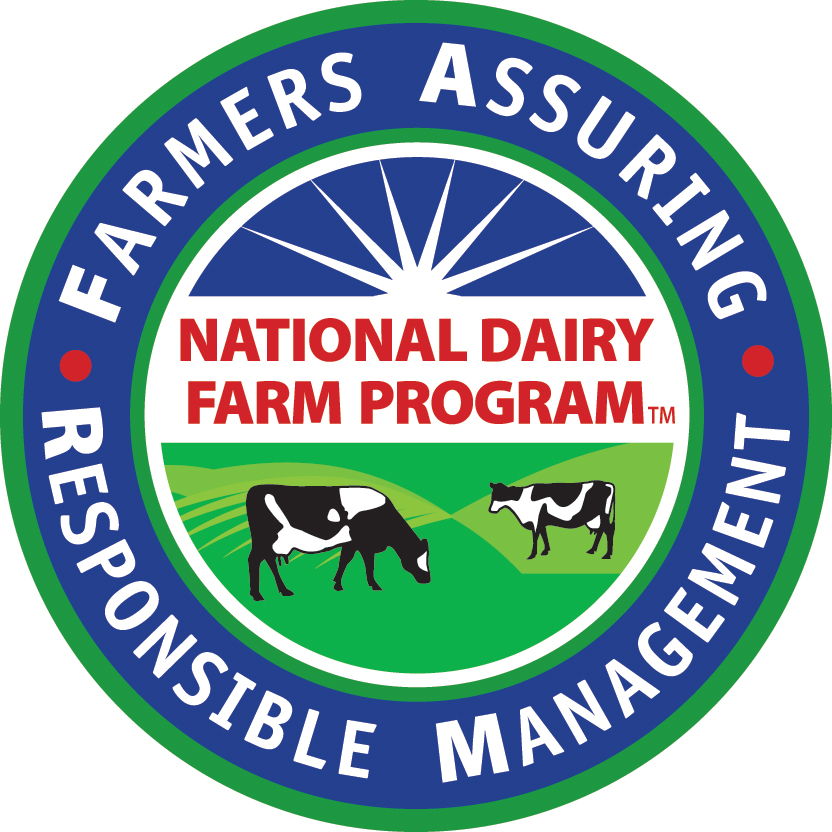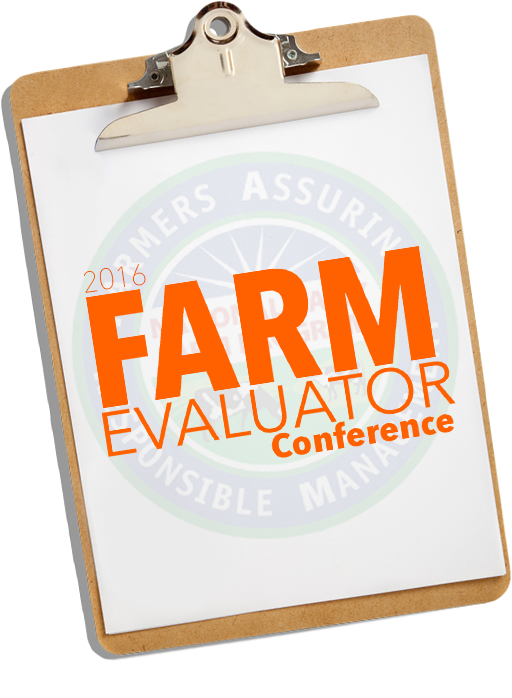ARLINGTON, VA – The Farmers Assuring Responsible Management (FARM) Program, administered by the National Milk Producers Federation (NMPF), is assuming management of the Farm Smart Program, previously managed by Dairy Management, Inc. Farm Smart, an environmental stewardship module for farmers to measure improvements they make in the area of sustainability, will become the voluntary Environmental Stewardship component of the FARM Program, NMPF announced today.
The FARM Environmental Stewardship module integrates the methodology and science of Farm Smart, a carbon footprint assessment tool created by the Innovation Center for U.S. Dairy. Farm Smart has been field-tested in several full supply chain pilots, and is familiar to the dairy cooperative, processor and retailer communities, but is still relatively new at the farm level. The Farm Smart science-based models are being fully integrated into FARM Environmental Stewardship, but will be updated in the future through a partnership between NMPF and the Innovation Center.
As dairy companies are increasingly asked for information about their environmental practices, the FARM Environmental Stewardship program will allow for the collection and dissemination of information on energy use and greenhouse gas emissions (GHG). The assessment will also help dairy producers identify potential efficiency gains and cost savings, offering them the ability to track progress in a secure, confidential platform.
“FARM Environmental Stewardship is a natural addition to the existing FARM Program pillars, FARM Animal Care and FARM Antibiotic Residue Avoidance, because it will help dairy farmers communicate another positive story with consumers,” said Jim Mulhern, President and CEO of NMPF. “FARM Environmental Stewardship will now begin down the important path of gaining insight, support and engagement at the cooperative and producer level.”
This fall and winter, the FARM Program will hold webinars, release training materials and provide farm resources to assist farmers and companies that want to begin utilizing the assessments. The module will be previewed at the FARM Evaluator Conference this November in Nashville, Tenn., held in conjunction with the NMPF Joint Annual Meeting. An online tutorial will also be made available later this year to cooperatives and producers looking to learn more.
Administration of FARM Environmental Stewardship will be managed by Ryan Bennett, NMPF’s Senior Director for Industry and Environmental Affairs, with overall FARM Program oversight by Emily Meredith, Chief of Staff. More information can be found on the FARM Program website.
###
The National Milk Producers Federation (NMPF), based in Arlington, VA, develops and carries out policies that advance the well-being of dairy producers and the cooperatives they own. The members of NMPF’s cooperatives produce the majority of the U.S. milk supply, making NMPF the voice of dairy producers on Capitol Hill and with government agencies. For more on NMPF’s activities, visit our website at www.nmpf.org.

 ARLINGTON, VA – The National Milk Producers Federation today endorsed new Senate legislation that would help dairy farmers increase their investment in technologies that can improve water and air quality and maximize the value of nutrients.
ARLINGTON, VA – The National Milk Producers Federation today endorsed new Senate legislation that would help dairy farmers increase their investment in technologies that can improve water and air quality and maximize the value of nutrients. ARLINGTON, VA – The National Milk Producers Federation (NMPF) expressed its support for new bipartisan legislation introduced in the House of Representatives that would clarify the exemption of dairy farms and other livestock producers from being subject to the Resource Conservation and Recovery Act (RCRA), which governs the safe disposal of solid waste.
ARLINGTON, VA – The National Milk Producers Federation (NMPF) expressed its support for new bipartisan legislation introduced in the House of Representatives that would clarify the exemption of dairy farms and other livestock producers from being subject to the Resource Conservation and Recovery Act (RCRA), which governs the safe disposal of solid waste. ARLINGTON, VA – The National Milk Producers Federation’s Farmers Assuring Responsible Management (FARM) Program will host a full day of programming during the 49th annual conference of the American Association of Bovine Practitioners (AABP) in Charlotte, N.C.
ARLINGTON, VA – The National Milk Producers Federation’s Farmers Assuring Responsible Management (FARM) Program will host a full day of programming during the 49th annual conference of the American Association of Bovine Practitioners (AABP) in Charlotte, N.C. NMPF sponsored the Consortium for Common Food Names seminar on protecting the right of food companies to continue using their products’ names, held June 21 in Chicago, Ill. The meeting sharped the focus across the food industry of the threats posed by European efforts to restrict the use of food names important to U.S. food producers.
NMPF sponsored the Consortium for Common Food Names seminar on protecting the right of food companies to continue using their products’ names, held June 21 in Chicago, Ill. The meeting sharped the focus across the food industry of the threats posed by European efforts to restrict the use of food names important to U.S. food producers. The National Dairy FARM Program continues to release new materials to help cooperatives and farmers prepare for the FARM Program Version 3.0 which will begin to be evaluated on in 2017. Among these resources are documents on tail docking and antibiotic use.
The National Dairy FARM Program continues to release new materials to help cooperatives and farmers prepare for the FARM Program Version 3.0 which will begin to be evaluated on in 2017. Among these resources are documents on tail docking and antibiotic use. The National Dairy FARM Program is hosting its first-ever, two-day evaluator’s conference from November 2-3, 2016, in Nashville, Tenn., following the conclusion of the joint annual meeting. The event will provide ample professional development opportunities for all FARM Program evaluators to network, hear from engaging speakers and interact with each other. Conference sessions will include discussions on the latest animal well-being research, crisis management and communications training, as well as round table discussions about FARM Program challenges and opportunities.
The National Dairy FARM Program is hosting its first-ever, two-day evaluator’s conference from November 2-3, 2016, in Nashville, Tenn., following the conclusion of the joint annual meeting. The event will provide ample professional development opportunities for all FARM Program evaluators to network, hear from engaging speakers and interact with each other. Conference sessions will include discussions on the latest animal well-being research, crisis management and communications training, as well as round table discussions about FARM Program challenges and opportunities. 




